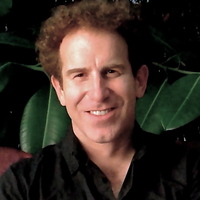 The Department of Geography and Environmental Studies is pleased to welcome Ted Rutland, Assistant Professor of the Department of Geography, Planning and Environment from Concordia University to present, “Geographies of policing in post 1960s Montreal” as part of the Founders Seminar Series.
The Department of Geography and Environmental Studies is pleased to welcome Ted Rutland, Assistant Professor of the Department of Geography, Planning and Environment from Concordia University to present, “Geographies of policing in post 1960s Montreal” as part of the Founders Seminar Series.
Abstract:
In Montreal, blackness has functioned as a figure of criminality for at least three centuries, and the spectre of black criminality continues to ground regimes of security in the city today. This paper interrogates policing practices in post-1960s Montreal through the lens of the enduring past. It begins with an examination of policing and security in the era of legalized racial slavery; drawing connections between the work of Saidiya Hartman and historical work on Montreal, it highlights the constitution of black visibility as inherently criminal (as criminality itself) and the emergence of policing as a form of protection offered to white citizens and their property (exclusively). A similar configuration of blackness, criminality, and policing, the paper argues, can be sited in the present, particularly as new waves of immigration augmented the city’s black population in the post-1960s period. Focusing on the geography of anti-black policing, the paper shows that blackness and criminality continue to be twinned in contemporary policing practices, and that the protection of white citizenship is assured through both enduring and novel forms of black confinement.
Bio:
Ted Rutland is an Assistant Professor in the Department of Geography, Planning, and Environment at Concordia University. His research examines how racism and racial categories are reflected in modern forms of state policy and power, particularly at the urban/local scale. Concretely, his work has examined the history of urban planning and racism in the city of Halifax, Nova Scotia, as well as the history of policing and black confinement in Montreal, Quebec. His work has appeared, among other places, in Environment and Planning D, Journal of Historical Geography, International Journal of Urban and Regional Research, and an in-process book entitled Plotting Subjugation: Planning, Power, and Race in Twentieth-Century Halifax.